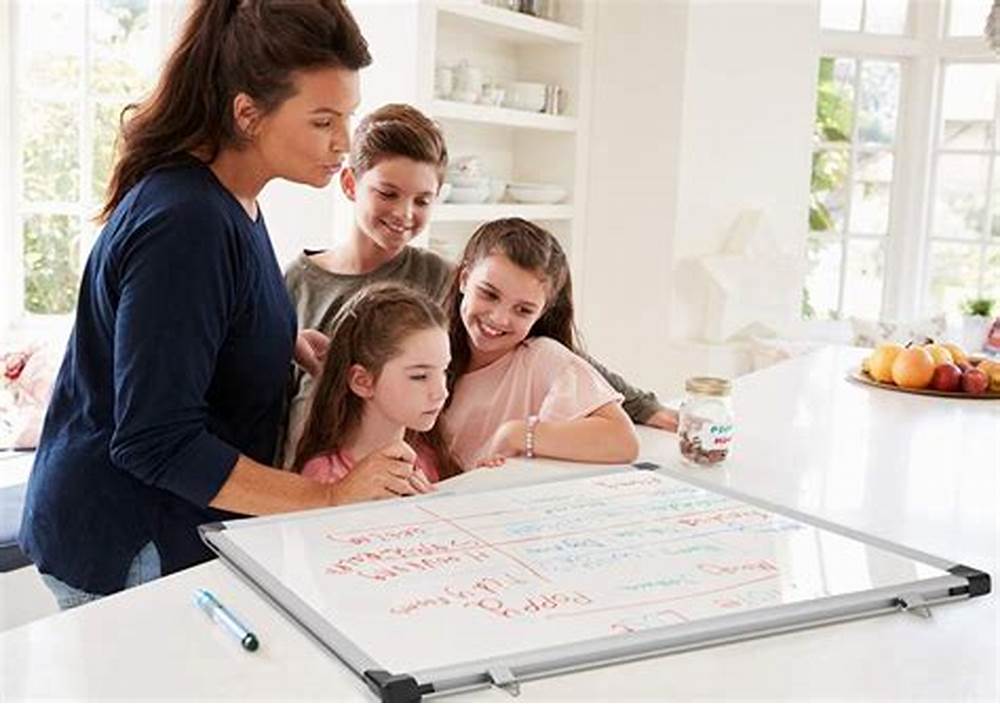In today’s fast-paced world, where schedules are packed and distractions are abundant, teaching children the value of organization is more crucial than ever. Most kids naturally generate a little chaos and disorganization, flitting from one activity to the next, forgetting books at school, and leaving towels on the floor. But with guidance and practice, children can develop the essential skills needed to become organized and focused individuals. As a parent, you play a pivotal role in teaching and nurturing these skills in your child, even if you don’t consider yourself the most organized person. In this comprehensive guide, we’ll explore effective strategies and practical tips to help your child become more organized and stay focused on tasks.
Understanding the Foundation
Introduce your child to the fundamental principles of organization using the “3 Steps to Success” framework: assemble supplies, stay focused, and get it done. These three simple steps can be applied to various tasks, from completing homework assignments to preparing for a big project. Let’s break down each step and explore how you can incorporate them into your child’s routine.
1. Assemble Supplies: Teach your child the importance of gathering all necessary materials before starting a task. Whether it’s studying for a test or completing a craft project, having the right supplies at hand sets the stage for success. Encourage your child to create a checklist of items needed for each task and to gather them before beginning.
2. Stay Focused: Distractions abound in today’s digital age, making it challenging for children to stay focused on their tasks. Help your child develop strategies for maintaining concentration, such as setting aside dedicated study time, minimizing distractions, and using techniques like the Pomodoro Technique or “beat the clock” games to stay on track.
3. Get It Done: Completion is key to success. Teach your child the importance of finishing what they start, checking their work for accuracy, and putting on the finishing touches. Establishing a routine for reviewing and organizing completed tasks helps reinforce the habit of follow-through.
Top 14 Ways to Help Your Child Get More Organized
Now that we’ve established the foundation, let’s dive into practical strategies that parents can implement to support their child’s organizational development.
1. Introduce Checklists:
Encourage your child to use checklists and to-do lists to keep track of tasks and assignments. Whether it’s homework assignments, household chores, or items to pack for school, checklists help children stay organized and focused on their responsibilities.
2. Use a Calendar:
Implement a family calendar to track schedules, appointments, and commitments. Encourage your child to use their own calendar or planner to manage their deadlines and priorities effectively.
3. Establish Household Routines:
Consistent routines for mealtime, bedtime, and daily chores provide structure and stability for children. Setting aside specific times for activities helps children know what to expect and reduces resistance to transitions.
4. Teach Time Management:
Help your child learn how to manage their time effectively by prioritizing tasks, estimating time requirements, and planning their activities. Encourage them to create schedules and allocate time for studying, hobbies, and relaxation.
5. Use Containers and Organizers:
Implement storage solutions such as containers and organizers to keep belongings tidy and accessible. Teaching children to return items to their designated places fosters a sense of order and responsibility.
6. Organize Schoolwork:
Provide your child with binders, folders, and color-coding systems to organize their school materials. Creating designated spaces for papers, assignments, and notes helps children stay on top of their academic responsibilities.
7. Create an Organized Workspace:
Designate a quiet, clutter-free area for your child to study and complete homework assignments. Ensure that the workspace is stocked with essential supplies and free from distractions.
8. Designate Study Time:
Establish a consistent study routine for your child and encourage them to stick to it. Setting aside dedicated time for homework and study sessions helps children develop discipline and focus.
9. Help Set Timelines:
Teach your child how to break down large tasks into manageable steps and create timelines for completing them. Setting deadlines and milestones helps children stay motivated and accountable for their work.
10. Conduct Weekly Cleanups:
Encourage your child to declutter and organize their belongings on a regular basis. Weekly cleanups help children stay organized and maintain a tidy living space.
11. Assign Chores:
Involve your child in household chores that promote organization and responsibility. Tasks like sorting laundry, organizing shelves, and tidying up their room teach children valuable organizational skills.
12. Establish Bedtime Routines:
Use bedtime as an opportunity to prepare for the next day. Encourage your child to lay out their clothes, pack their bag, and review their schedule before going to sleep.
13. Cook Together:
Cooking activities provide opportunities for children to practice measuring, following directions, and organizing ingredients. Involving your child in meal planning and preparation fosters independence and confidence in the kitchen.
14. Other Tips:
Explore additional strategies such as cultivating hobbies that promote organization, introducing idea organizers, creating memory aids, and involving children in adult responsibilities.
Conclusion:
Helping your child develop organizational skills is a valuable investment in their future success. By teaching them the importance of organization, providing practical strategies, and offering consistent support, you can empower your child to thrive in school, at home, and beyond. Remember, developing organizational habits takes time and patience, so be sure to celebrate your child’s progress and offer encouragement along the way. With your guidance, your child can cultivate the skills they need to become confident, capable, and organized individuals.

